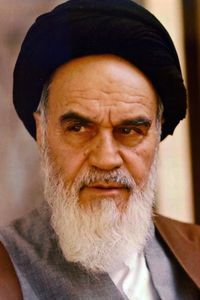Sayyid Ruhollah Musavi Khomeini, also referred to as Ayatollah Khomeini, was a prominent Iranian figure who played a pivotal role in shaping the country's political and religious landscape. Born on May 17, 1900, Khomeini's life was marked by a deep commitment to Islamic principles and a strong desire to reform Iranian society.
Throughout his life, Khomeini was a respected religious scholar and leader, earning the title of Ayatollah. He was a charismatic figure who inspired devotion in his followers and commanded respect from his adversaries.
Khomeini's most notable achievement was his role in the 1979 Iranian Revolution, which saw the overthrow of Shah Mohammad Reza Pahlavi and the end of the Persian monarchy. This revolutionary movement was a defining moment in modern Iranian history, marking the beginning of a new era of Islamic governance.
Following the revolution, Khomeini became the first supreme leader of Iran, a position created in the constitution of the Islamic Republic. As the highest-ranking political and religious authority of the nation, Khomeini wielded significant power and influence, shaping the country's laws, policies, and institutions.
Khomeini's leadership was marked by a series of significant events, including the Iran-Iraq War, which lasted from 1980 to 1988. During this period, Khomeini's leadership was tested by the challenges of war, economic hardship, and international isolation.
Despite these challenges, Khomeini remained a powerful and influential figure, inspiring devotion in his followers and commanding respect from his adversaries. He continued to shape Iranian politics and society until his death on June 3, 1989, when he was succeeded by Ali Khamenei.



























